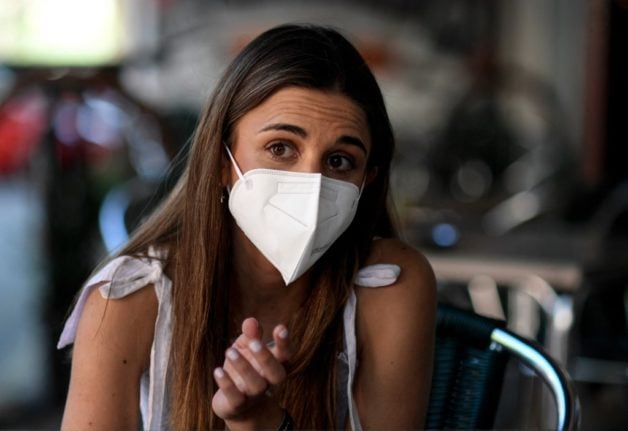Almost all Covid measures are being relaxed from Thursday, February 17th.
Covid certificates – which show someone has been vaccinated, recovered or in some cases has tested negative – will no longer be required in restaurants, cinemas or at events.
Masks will no longer be required in shops, supermarkets and the workplace, while they will continue to be required in public transport and in hospitals for the meantime.
Restrictions on private events will be removed.
“At its meeting on 16 February, the Federal Council took the decision to lift the majority of measures in place to contain the coronavirus pandemic,” the government said in a press release.
“Only the requirements to isolate in the event of a positive test and to wear masks on public transport and in healthcare institutions will remain in place.”
Why are measures being relaxed?
Put simply, the Swiss government believes the virus poses a less severe danger than before, due to mutations and more than two thirds of the population having vaccination protection.
Throughout January and February of 2022, Switzerland has continually broken daily infection records, however hospitalisations and ICU admissions have remained steady.
Since May of 2021, the major metric in determining whether to put new measures in place has been hospitalisations and ICU capacity rather than infection rates.
The Swiss government cited this in their press statement, saying they were not concerned the relaxation could lead to a rise in severe cases of the virus and hospital admissions.
“The epidemiological situation continues to develop positively,” the government wrote on Wednesday.
“Thanks to the high level of immunity among the population, it is unlikely that the healthcare system will be overburdened despite the continued high level of virus circulation.
“For the Federal Council, this means that the conditions are in place for a rapid normalisation of social and economic life.”
Reader question: Which Swiss cantons will keep the Covid certificate in place?
The government indicated the decision was a result of intensive consultation and consideration, with the safety of the population being the major concern.
“After consulting the cantons, the social partners, the parliamentary committees and the associations concerned, it is lifting most of the measures in place to combat the pandemic.
“Since May 2021, it has based its measures on available capacity in the healthcare system.”
Click here for the government’s official press release announcing the new measures.
Switzerland will also phase out the Scientific Task Force at the end of March. The Task Force has provided the government with advice on how to safely navigate the pandemic.
“In light of the positive developments, the need for scientific advice is changing. Individual members of the Science Task Force will continue to be available to the Federal Council and the Federal Administration for consultation.”




 Please whitelist us to continue reading.
Please whitelist us to continue reading.
Member comments